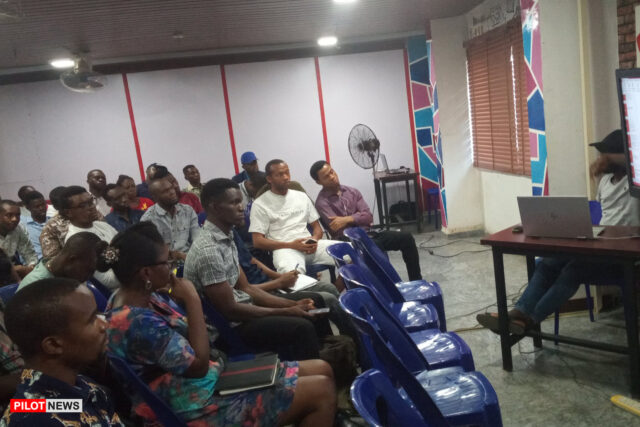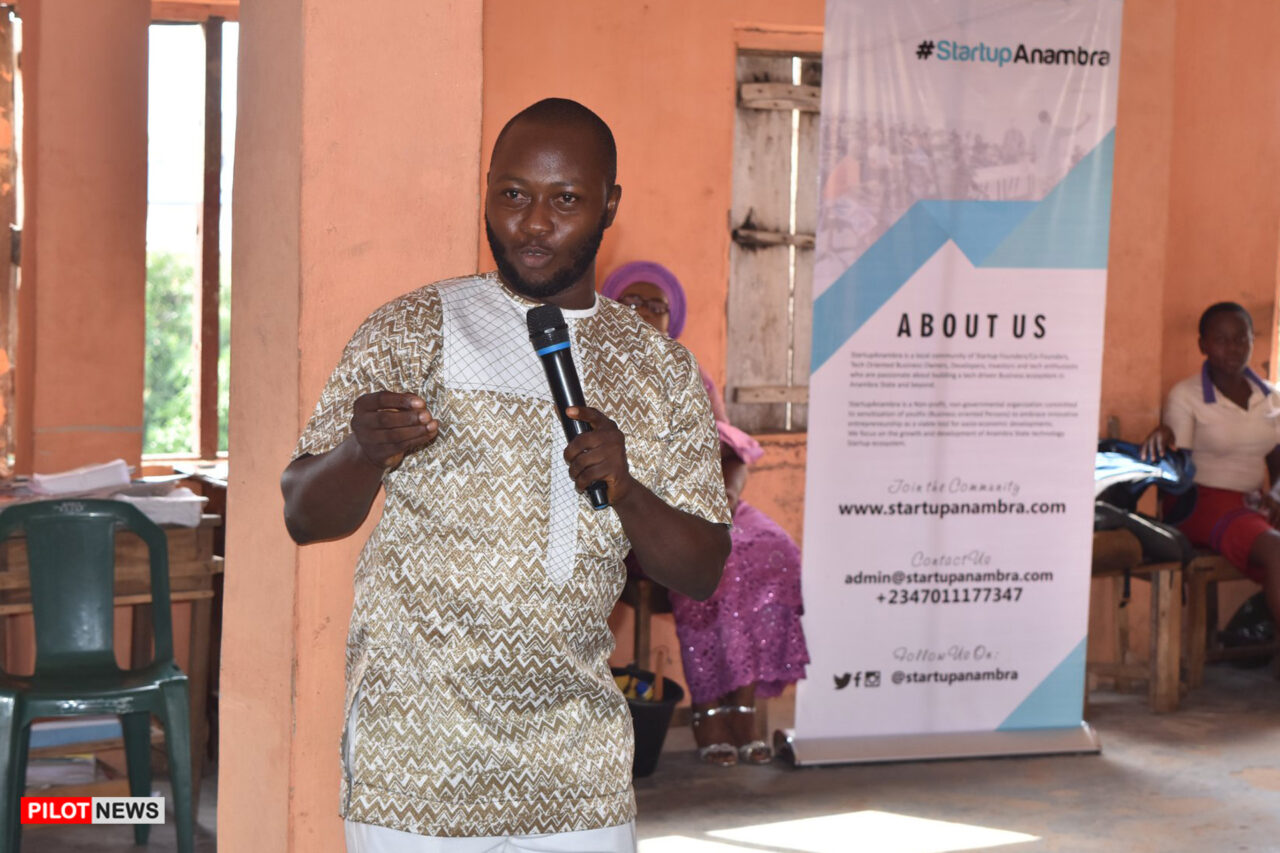Report by Ebuka Onyekwelu
AWKA — Pandemics are purely health-related, however, “throughout history, pandemics have had profound economic effects”, writes The Economist. This is true as can be observed with the COVID-19 pandemic, not just in Nigeria but around the world. More people have lost their job, many businesses are struggling while some have collapsed under the weight of the burden of the pandemic, yet, it is not over.
In Anambra State, it is no different. Many startups have been struggling to catch-up with the time and opportunities lost to the lockdowns and the generally slow pace of activities imposed by the pandemic, to no avail. With little or no backup and with no luxury of opportunities, startups in Anambra state are left on their own to struggle their way through the top if they can or just extinct if they cannot. There is no third option or middle ground. However, some of these startups have challenges that date back to pre-COVID-19.
Anambra state is a leading light in business and enterprise not just in Nigeria, but beyond, with over one million businesses and companies according to Dr. David Nzekwu the Chairman of Anambra State Revenue Service. Therefore what we have in Anambra state is a budding potential for vast economic revolution with the possibility of rapid acceleration because of the immense manpower and youth population that is readily available, if properly deployed. Yet, it is not clear what the government is doing to help small businesses and startups in particular in a bid to expand the economic base of the state, while also creating the next generation of successful businesses and industries.

Although the Anambra State Investment Protection and Promotion Agency – ANSIPPA- has been doing its best to bring in investors into the state, yet, not many foreign investors have been able to establish in Anambra state. Throughout Anambra state, most industries and businesses that exist are purely indigenous. Virtually all industries in Anambra are owned by Anambra people; a clear pointer that the economic future of the state may as well be within. Then again, it is not clear what the Anambra State Small Business Agency –ASBA- is doing with its mandate to help fund viable small businesses. There is nothing serious happening with the agency and even with the pandemic; there is no effort to help startups and other struggling small businesses. “I reached out to ASBA for funding, they said they are not ready yet”, said Engr. Ekene Akobi a chemical engineer, who founded the Hi-Tech Garage; a company that uses hi-tech to resolve car faults and meet car service needs, based in GRA, Agu-Awka, Awka, Anambra state. Ekene runs Bret and Harow Travel Agency and an education consult that is based in Awka but only recently, expanded into car mechanics and services relying on hi-tech solutions after he returned from training in petroleum pipeline and automobile care in the United States. “I have put in a lot of money in this business. But we are still coming up slowly because of funding, if I have access to good funding, I am sure we will do better. You know, COVID-19 crippled travel and tour business for long months, otherwise, our hi-tech car mechanic and servicing business would have gone far but I am confident in what lies ahead”, Ekene said.
Hundreds of Anambra state graduates today have gone into several informal sectors to make a living, as getting a job in Nigeria after university education has become increasingly difficult. Not surprising that despite shunning out millions of graduates yearly and one of the highest in the country, a recent report by the federal government on unemployment revealed that Anambra state has one of the lowest levels of unemployment rates in Nigeria. In other words, many young Anambra graduates are not just waiting for job. They are doing something to make their ends meet.
Today, various tech solutions and agro startups abound across the state. Young graduates have taken to agriculture and other sectors to make a living amidst thorny business environment with very little chances of securing business capital.
Elechukwu Nwanya, a graduate of geology has taken to agriculture as a job opportunity in his field of study appears perpetually scarce. For him, pre-COVID or post-COVID, the challenges facing young agro entrepreneurs in Anambra State are constant, only perhaps exacerbated. “My farm Eliks Farm and Agro Industries Ltd, is located in Mgbakwu Awka North, Anambra state, I must tell you, it is not easy”, Elechukwu said in a chat with the West African Pilot Columnist. “As a young agricultural entrepreneur in Anambra state, there are challenges. Although every business has its own challenge but having been in this business in Anambra state for a few years, I can tell you that one of the major challenges we are having in terms of crop production is Fulani herdsmen. To be honest, I lost a lot of money a couple of years ago. I planted pumpkin in a very large quantity when it was due for harvest, just in a space of one week; I returned to the farm and did not find anything again. Herdsmen invaded the farm and finished everything in the vast expanse of land”.
Elechukwu’s experience is not very different from the experiences of many young agro startups that have their farms in Mgbakwu, Urum in Awka north local government area or Anyamelum or Anam in Anambra north zone, or any other place where many young enterprising Anambra men and women are working hard to change the narrative. Although for Chibueze Oforbuike a graduate of Political Science with master degree who went into cassava farming, he never had any issue with herdsmen. Chibueze’s farms are located in Ebenebe in Awka north and within Awka. “I was doing cassava but then it didn’t give me what I wanted so I am switching over to processing and pigry”, Chibueze said. As for the specific challenge he has with cassava farming he said, “Its soil texture. Soil texture determines the yield. What happened was that I didn’t really conduct a very good soil test to determine the yield”. For so many young people in Anambra eager to do something rather than just wait for the government, it is a long delicate walk of trial and error which also takes a toll on the very little resources they are experimenting with.
In Mgbakwu, a village in Awka north that is about five to seven minutes’ drive from Awka, many of the farms there are owned by young agricultural entrepreneurs. “Another challenge we have”, Elechukwu said, “is land fragmentation. It is very difficult to get massive farmland. Most of the lands are owned by communities and the lands have been divided among individuals”. Speaking further on other challenges, “There is no way a young entrepreneur can fence large portion of land required for agriculture, he will definitely need funding and this is why security of the farm is very important. Most farms in Mgbakwu are fenced with bamboo sticks but what the herdsmen do is that they use their cutlass to just cut down the bamboo fencing and invade cultivated farmlands. So as a security measure, I do not go to my farm alone. Sometimes, I hire a Hausa speaking person, while going there”. Looking at the impact of this security situation on the business, “if what we have in the farm is not protected, it is a waste of investment and precious time, a major de-motivation and demoralization, especially for young agro startups and there is no way we can maximize opportunities under this circumstances”, he said. For Elechukwu, the prediction of severe hunger in Nigeria is a direct consequence of insecurity and the impact of COVID-19 on agro startups is only but an “extra dose of the existing challenges”.
Gerald is the founder of G. Soft Technologies and ICT Solutions ltd, a startup company that provides various tech solutions, in Anambra state. He is a graduate of Computer Science. “After school, I went to learn how to repair computers and actually solve the computer problems of people, I did not learn it in school”, Gerald told the West African Pilot Columnist. “Most times, it is difficult to convince people to move from analog to digital solutions. For instance, there is this modern camera called IP camera, very sharp and meet all the needs of a client, but it is expensive to the extent that for just ten cameras, one can expend as much as eight hundred thousand Naira. But it is durable and can last for as much as five to eight years without servicing and repairs, yet even well to do people are not willing to have it installed for them”. Speaking on how the government can help make his line of business better, he said government should provide opportunities for more training and little funding for those in the industry who needs it. “Training is key. It is beyond education”, Gerald said.
Several Anambra startup businesses abound across the state; these businesses owned by young men and women who are beating the odds, creating their own opportunities in completely new sectors, may as well be the future of economic prosperity in Anambra state and beyond, with little structural support from the government.


